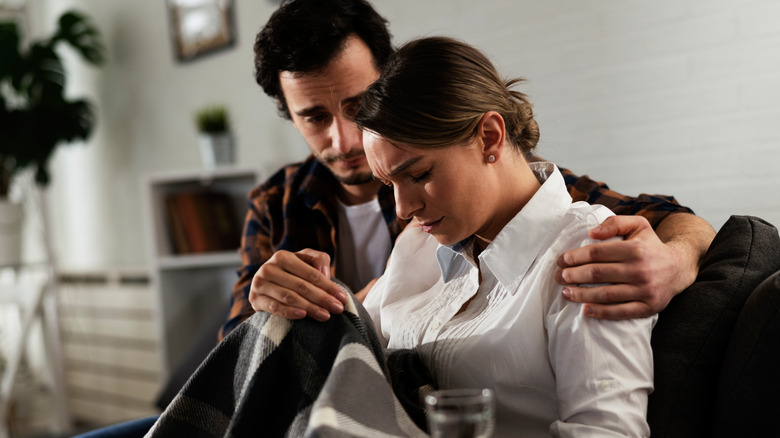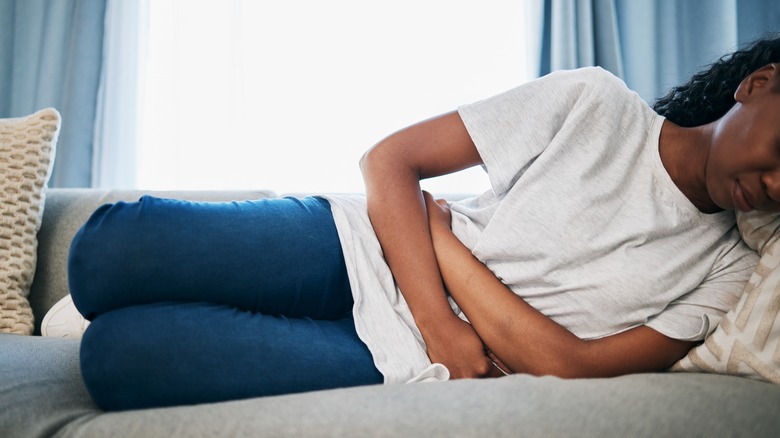If This Happens After Sex, You Might Have Endometriosis
Immediately following sexual intercourse, you may find yourself out of breath, overcome with a wave of exhaustion, or floating in a sea of "feel good" hormones. Sometimes, however, sensations experienced post-sex aren't so pleasant, particularly if this includes cramping. For people with vaginas, cramps that set in after orgasm aren't unheard of. "These are usually a result of uterine muscular contractions which naturally occur with orgasm," sexual reproductive health expert Dr. Alyssa Dweck told Prevention. Alternatively, if you and your partner are trying out some new moves in the bedroom, this, too, may lead to cramping if the cervix is reached during penetration (via HealthShots).
Generally speaking, cramps related to orgasm or changes in physical positioning are usually short-lived. More severe cramping that occurs after sex on a regular basis, however, may be indicative of endometriosis, a chronic condition estimated to impact 190 million girls and women of reproductive age around the world, according to the World Health Organization (WHO).
Signs of endometriosis
Characterized by severe chronic pelvic pain, endometriosis is a result of abnormal tissue growth that takes place outside of the uterus (via WHO). This tissue is much like the tissue that lines the inside of the uterus, but when this growth occurs outside of the organ, it prompts scarring and inflammation. Little is known about the nature of endometriosis, as no cause, cure, or methods of prevention have been identified. In addition to the pain experienced in the midst of or after sexual intercourse, people with endometriosis may also experience pain during menstruation or when going to the bathroom. Bloating, nausea, heavy menstrual bleeding, difficulty getting pregnant, and fatigue are also known symptoms.
Dr. Dweck told Prevention that people who experience pain during or after sex are most often those with endometriosis, with this kind of cramping being among the top signs of the condition. Because there is no known cure, endometriosis can be tricky to treat. However, some medications or certain surgical procedures may help alleviate symptoms.
Tips for reducing pain during or after sex if you have endometriosis
If you think you may have endometriosis, be sure to speak with your physician. Although symptoms can impact a patient's sex life, there are ways in which individuals and their partners can experience sexual fulfillment in ways that are right for them. Photographer Victoria Brooks, who is diagnosed with endometriosis herself, told Healthline that open and direct communication between partners is key.
Brooks also suggests tracking your periods, which may provide insight as to when, during one's menstrual cycle, the pain may be less severe. Planning ahead can also help reduce the risk of pain during sex, such as by taking an over-the-counter (OTC) pain-relief drug about 60 minutes in advance. During sexual intercourse, using lube and trying out different positions can help patients figure out what is most comfortable for them. While missionary position can be particularly painful for many patients, positions that avoid deeper penetration, such as spooning, may be more pleasurable.



